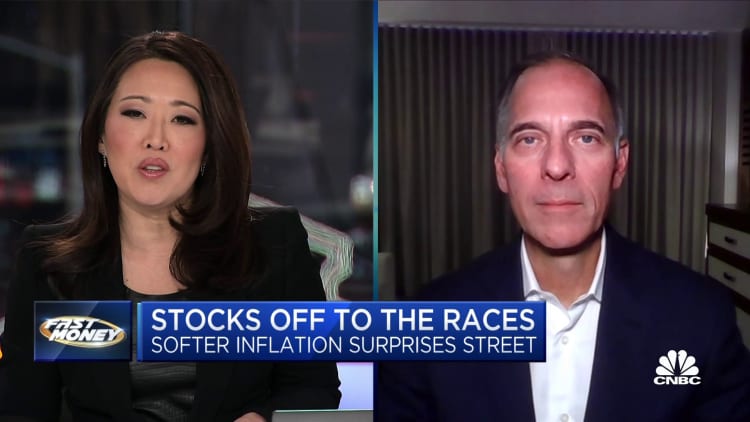The prolonged period of high inflation may finally be coming to an end, according to an analysis of recent data by UBS global wealth management.
In October, the consumer price index, a closely followed inflation gauge, increased 3.2% from 12 months earlier, down from 3.7% in September, the U.S. Bureau of Labor Statistics said Tuesday.
The report marked a significant improvement on the pandemic-era peak of 9.1% in June 2022.
“By next spring, inflation will have slowed to a comfortable level for both the Fed and investors,” said Solita Marcelli, chief investment officer of the Americas for UBS Wealth Management.
More from Personal Finance:
Here’s the inflation breakdown for October 2023 — in one chart
The ‘radically different’ wage growth forecast in 2024
Cooling job market no reason for panic yet, economists say
“The slower pace of inflation is little comfort to households still dealing with the cumulative effect of rising prices,” said Greg McBride, Bankrate’s chief financial analyst.
“The strain on household budgets is real.”
47% of adults say monthly expenses exceed income
Consumers have struggled to keep up with high prices and higher interest rates across the board.
Nearly half, or 47%, of adults said their monthly expenses exceed their monthly income, according to a recent report by First National Bank of Omaha, and 62% of adults said they are living paycheck to paycheck, studies also show.
For now, though, cooling inflation could keep the Federal Reserve on the sidelines.
Although Fed Chair Jerome Powell recently said “inflation is still too high,” a move in December “seems highly unlikely,” McBride said. “But stubbornly high core inflation will have the Fed keeping their options open into 2024.”
Altogether, the central bank has raised rates 11 times in a year and a half, pushing its key interest rate to a target range of 5.25% to 5.5%, the highest level in more than 22 years.
However, the Fed is unlikely to be able to claim victory just yet, Marcelli said.
For consumers, that means there will be no relief from sky-high borrowing costs.
Subscribe to CNBC on YouTube.
Credit: Source link




